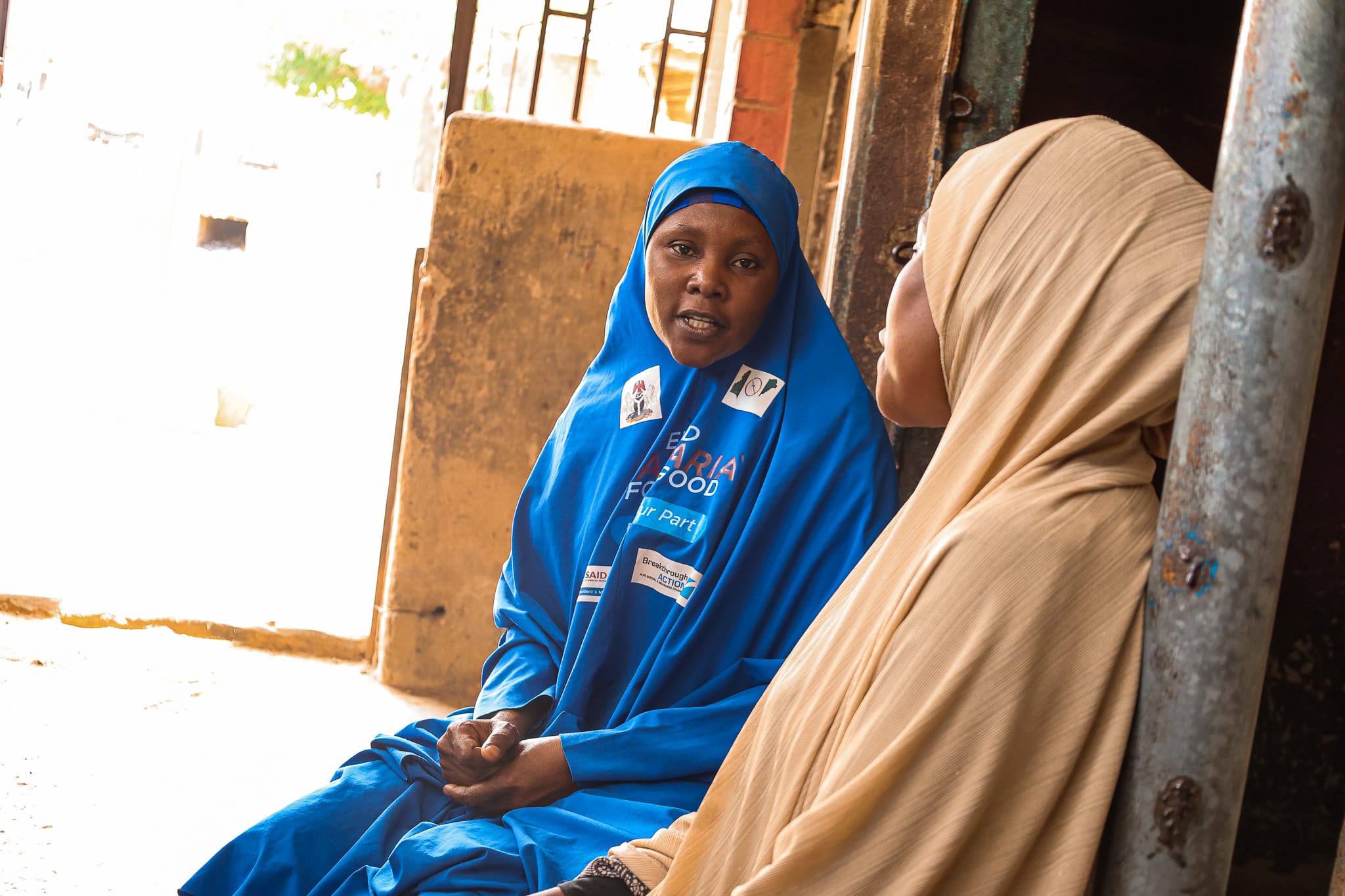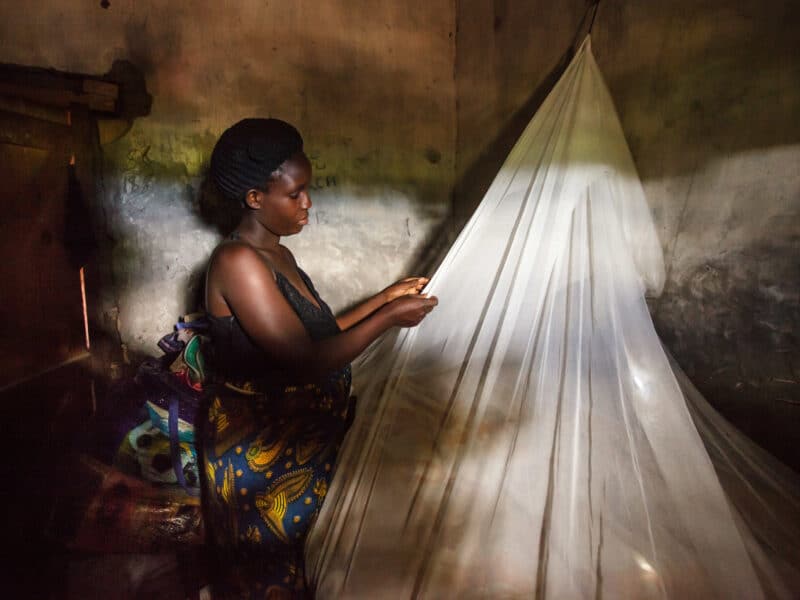During her first three pregnancies, Maryam Abubakar Haruna did not visit a health facility for prenatal care services. In just four years, she lost all three babies to stillbirth.
Pregnant with her fourth, Haruna attended a community dialogue near her home in central Nigeria led by volunteer Zainab Yunus. Yunus, who was trained by a program as part of the Johns Hopkins Center for Communication Programs-led Breakthrough ACTION-Nigeria project, told Haruna and her neighbors of the importance of prenatal care in ensuring a healthy delivery.
After the meeting, Haruna approached Yunus. In Plateau State, where Haruna lives, there are cultural and social practices and beliefs that affect how some women access medical care during pregnancy. For example, some women are proud of navigating pregnancy and labor with little to no help from trained midwives or medical professionals and their husbands do not see the importance of spending meager resources on medical care. But these practices can be harmful.
For this fourth pregnancy, Yunus referred Haruna for prenatal care, after Haruna relayed stories of having fevers and self-medicating during her previous pregnancies. Following a conversation about the many benefits of early prenatal care, the importance of spousal support for prenatal care and the dangers of delivering at home, Haruna decided it was time for a new approach.
Yunus “referred me to the primary health center and, thanks to God, they took very good care of me, and I delivered a healthy baby,” Haruna says. “I am now urging all pregnant women to visit health care facilities as soon as they become pregnant because of the dangers of malaria to pregnant women.”
In Plateau State alone, more than 2,500 women were referred to prenatal care by community volunteers like Yunus between Nov. 2018 and Feb 2024. Of those, more than 2,100 women attended the recommended prenatal care visits – an 83 percent completion rate.
Breakthrough ACTION-Nigeria, with funding from the U.S. President’s Malaria Initiative (PMI), developed and implemented several engaging social and behavior change activities to improve the lives of pregnant women and their babies. These activities, conducted through community health dialogues and house-to-house visits with community volunteers and other local health officials, encouraged women to register for prenatal care, attend prenatal care regularly and early, and get support from their spouses, helping them start conversations with their husbands on the importance of prenatal care, all with special attention being paid to malaria prevention.
Pregnant women are at high risk of complications from malaria. When they get malaria, they are at a higher risk of anemia, miscarriage, and early and underweight births. Among the things discussed at prenatal care guidance on how to avoid malaria by sleeping under an insecticide-treated net (ITN) every night and taking intermittent preventive treatment during pregnancy (IPTp). But to get IPTp, women need to be under the care of medical professionals.
“Many women have malaria during pregnancy but are unaware of it due to non-attendance of” prenatal care, Yunus says. Haruna has “been placed on malaria treatment and has safely delivered a healthy baby.”





